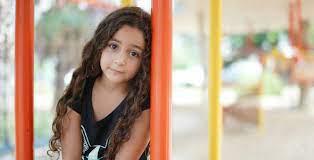
Top of Form
Children in Lebanon are bearing the brunt of one of the world’s worst economic collapses in recent times, according to a survey released by UNICEF Thursday.
A statement from UNICEF announcing the survey's results said a series of crises, including a devastating recession, have left families and children in the country in a dire situation, affecting just about every aspect of their lives, with few resources and virtually no access to social support.
“With no improvement in sight, more children than ever before are going to bed hungry in Lebanon," Yukie Mokuo, UNICEF Representative in Lebanon, was quoted as saying.
"Children’s health, education and their very futures are affected as prices are skyrocketing and unemployment continues to increase," she said. "More and more families are being forced to resort to negative coping measures, including sending their children to work in often dangerous and hazardous conditions, marrying off their young daughters or selling their belongings."
UNICEF said its survey found that:
- Over 30 percent of children went to bed hungry and skipped meals in the past month.
- Seventy-seven percent of households do not have enough food or enough money to buy food. In Syrian refugee households, the figure reaches 99 percent.
- Sixty percent of households have to buy food on credit or borrow money.
- Thirty percent of children are not receiving the primary health care they need, while 76 percent of households said they are affected by the massive increase in medication prices.
- One in 10 children have been sent to work.
- Forty percent of children are from families where no one has work and 77 percent are from families that do not receive any social assistance.
- Fifteen percent of families stopped their children’s education.
- Eighty percent of caregivers said their children had difficulties concentrating on their studies at home – which might indicate hunger or mental distress.
The protracted economic depression is just one of the compounding crises in Lebanon, which is reeling from the impact of the COVID-19 pandemic and the aftermath of the massive August 2020 Beirut Port explosion, as well as the persistent political instability. While the 1.5 million Syrian refugees are the most hard-hit, the number of Lebanese people in need of support is growing rapidly, UNICEF said.
“The World Bank has described what is happening in Lebanon as possibly one of the top three economic collapses seen since the mid-19th Century. What the UNICEF survey shows is that children are bearing the brunt of this escalating catastrophe,” Mokuo remarked.
UNICEF reinforced its call to the national authorities to implement a major expansion of social protection measures, to ensure access to quality education for every child, and to strengthen both primary health-care and child protection services.
“Determined, concerted action is critical to mitigate the suffering, particularly among the most vulnerable, who are trapped in a spiral of poverty,” said Mokuo. UNICEF is expanding its programme and, with the support of the donor community, the agency will be ready to help more children and families. “Children’s well-being and safeguard must be a top priority to ensure their rights are met under any circumstance," she said. "Lebanon cannot afford children to be nutritionally deprived, out of school, in poor health and at risk of abuse, violence and exploitation. Children are an investment, the ultimate investment, in a nation’s future.”
Lebanon's Parliament Wednesday approved cash cards for the poorest to cushion the gradual collapse of subsidies due to the economic crisis, though officials still need to secure funding for the scheme.
Bottom of Form
Source: The Daily Star
 FR
FR EN
EN AR
AR








